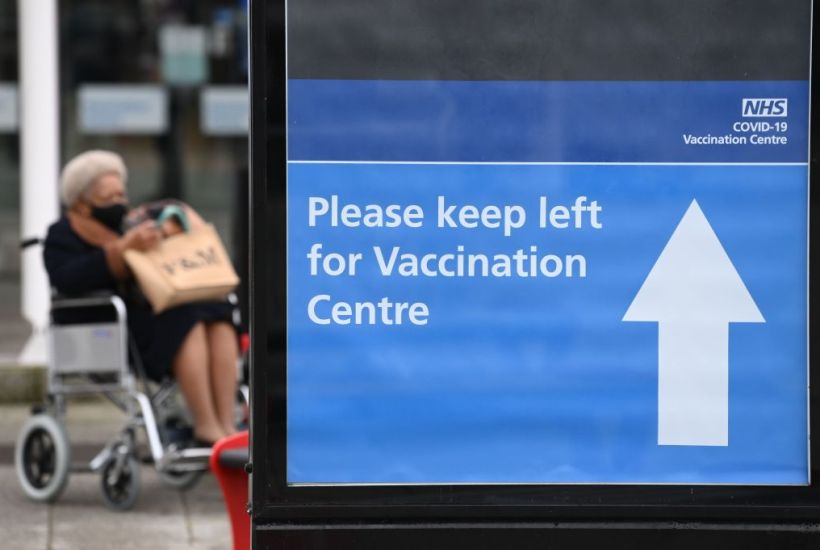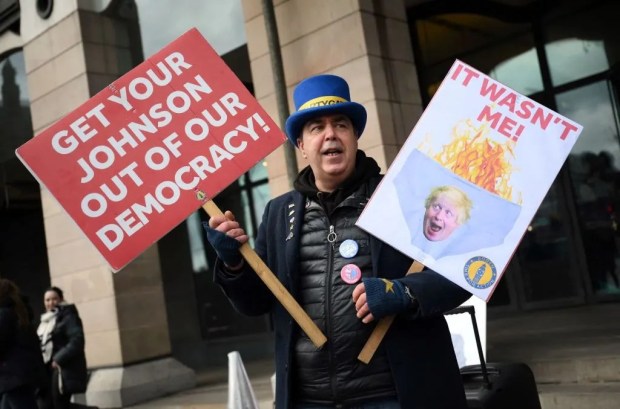The Prime Minister only has himself to blame for the public outcry over 70-year-olds being vaccinated when there are still many over 80-year-olds waiting even to be invited to be vaccinated. What I mean by this is that there was a perfectly good argument for vaccinating 70-to-80 year olds before the more elderly, or at the same time. But Boris Johnson eliminated all debate about that when he ordered the Joint Committee on Vaccination and Immunisation to organise the vaccination programme so that deaths from or with Covid-19 should be cut as rapidly as possible.
As Professor Lim Wei Shen, chair of immunisation at the JCVI, told Jeremy Hunt’s health committee last week, it was this instruction from the PM and the health secretary that meant residents in care homes, with their carers, and those over 80 would be vaccinated before anyone else. If those priorities aren’t being met, it’s by definition a government failure. But, as ministers concede to me, it would have been rational and humane for the PM to have issued different instructions for who gets the vaccine first, rather than his simple order to cut the number of death certificates mentioning Covid-19.
The brutal point is that a 70-year-old is likely to have more good quality years ahead of them – what are called ‘quality adjusted life years’ – than a 90-year-old. Saving one 70-year-old from a Covid-19 death is likely to preserve more ‘quality adjusted life years’ than saving one 90-year-old. So although vaccinating 85-year-olds before 70-year-olds will probably reduce the number of deaths directly caused by Covid-19 fastest, simply because the mortality rate from Covid-19 rises so fast with age, that prioritisation does not necessarily maximise the preservation of ‘quality adjusted life years’.
And there is another thing. Deaths from all causes are rising because the NHS is being overwhelmed by Covid-19. And if prioritisation was ordered purely on the basis of reducing pressure on the NHS, yet another ranking of vaccinations might well have been ordered. What’s relevant, for example, is that 52.0 per cent of coronavirus sufferers in intensive care are aged between 50 and 69, 21.5 per cent are aged 70 to 79 and just 4.6 per cent who are over 80 (according to authoritative data from the Intensive Care National Audit and Research Centre).
If the imperative was to reduce pressure on intensive care, those aged 50 to 69 would be receiving the vaccine now, and those aged 60 to 69 (the age group most likely to be in intensive care) would be right at the front of the queue. In the end, the PM chose his very simple and easy-to-understand instruction, which may well be the best politics. But we won’t know till we are through this crisis whether it is the optimal route back to some semblance of normal life. It may be that as a society we value prolonging someone’s life by an extra half an hour as much as prolonging another’s for ten years. But as Lord Sumption has implied – using what many would see as grotesquely insensitive language – the NHS has never been run on that basis. And until Covid-19 came along, it was never remotely controversial that in a world of scarce resources, medical help would be disproportionately allocated to younger people who had both the potential and hope of more years of life ahead of them.
As I’ve mentioned before, I wept when in 2016, after weeks in hospital, my father told a senior doctor that as an economist he was clear that the cost of keeping him alive was now plainly greater than the utility of doing so. He died not long after. I so admire the courage of my father in facing up to this most difficult of questions in his own case. Few are able to make this calculation about their own lives. But the whole point of democratic politics is to debate and enforce rules we think are fair so that individuals are not put in the invidious decision of deciding whether their own lives are worth more than others’. We have depressingly and shockingly failed to have this debate about who gets the vaccine first.
Got something to add? Join the discussion and comment below.
Get 10 issues for just $10
Subscribe to The Spectator Australia today for the next 10 magazine issues, plus full online access, for just $10.





















Comments
Don't miss out
Join the conversation with other Spectator Australia readers. Subscribe to leave a comment.
SUBSCRIBEAlready a subscriber? Log in